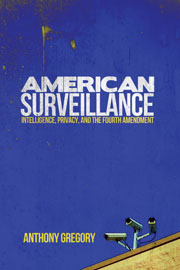Ever use a phone headset while driving? It’s distracting. You might find yourself precariously steering with your left knee while positioning the plug into the jack, dialing with one hand and steadying the earpiece with the other. God help you if you’re using a clutch. Some headset models are less clumsy, but such madness is and will remain perfectly legal in California, because it’s “hands-free”—a fitting term for such acrobatics. Driving while talking on the phone the old-fashioned way, however, will be punishable by a small fine beginning July 1.
Do those gizmos really make driving while gabbing safer? Studies done by the New England Journal of Medicine (1997), the National Safety Council (2001), the University of Utah (2003), the Swedish National Road Administration (2003), the Canadian Automobile Association for Traffic Safety (2004), the British Medical Journal (2005), and Carnegie Mellon University (2008) indicate there’s little if any difference whatsoever.
In 2003 the Harvard Center for Risk Analysis estimated 2,600 annual phone-related road deaths nationwide. The California Highway Patrol counted only six phone-related traffic fatalities statewide in 2006—out of over four thousand. How many more people crashed because they were sleepy, angry, ill, talking to a passenger, eating, or dialing the radio? Do we need laws against such distractions too?
The Public Policy Institute of California considers the CHP figure way too low: it estimates the new headset rule could save 300 lives statewide annually, based on declining accident rates in states with similar laws.
But crediting the trend to the law assumes general compliance. Yet people still break drunk-driving and drug laws as much as ever, despite increasingly draconian penalties that make this meager fine look like a joke.
Fatal traffic accidents are a horrifying epidemic. They claim forty-two thousand American lives yearly and one out of fifty deaths worldwide. This leading cause of death surpasses terrorism, illegal drugs and crime combined. If phone use is a major factor, why the wrist slap? (On the other hand, 1.1 million people worldwide died on roads last year, including in dozens of countries with cell phone restrictions, many stricter than the California law.)
The analogy between driving on the phone and drunk driving is overblown, but consider: after Clinton lowered the blood alcohol limit in 2000, police spent much more time stopping, arresting, and processing lighter drinkers at the cost of catching heavier ones. This might be why “from 2000 to 2003, drunk-driving deaths began to inch upward again, after two decades of decline,” argued Radley Balko in The Washington Times in 2005. Instead of reducing reckless driving, strict DUI laws can miss the point. These cell phone tickets will only waste more police time.
But they’ll bring in revenue—the real motivation behind many traffic laws. Consider red-light cameras. In Los Angeles, about 80% of red-light camera tickets go to drivers making rolling right turns. Meanwhile, Dallas and other cities are rethinking the cameras altogether: when they successfully discourage drivers from running red lights they bring in less ticket revenue. Can’t have that.
Perverse incentives explain why, aside from proposing more fines, cops and privacy invasions, politicians never really confront the unacceptable traffic death toll.
When cracked paint or tainted spinach hurts even a few, public activists and politicians loudly demand investigations and new regulations. When 42,000 Americans die on government roads, it is mostly ignored. But if a business produced nearly so many dead customers, it would be seen as a conclusive indictment of capitalism.
People understandably hold government to especially low standards, but why not consider private and community ownership of roads? Half the roads in nineteenth-century America were not built by tax-and-spend government. And today, all residential roads are private in places such as North Oaks, Minnesota.
With government out of the way, road rules would still be standardized to cultural norms, but the market would set particular safety policies. Business owners would have to provide safe roads while avoiding costly, counterproductive practices that alienate their clientele. Most important, Americans would not accept nearly as many deaths on private roads as they now assume as a fact of life on government roads.
Such a proposal is radical but California’s 4,000 annual road deaths demand a dramatically different approach. All this new law promises is a boost to the headset industry.








